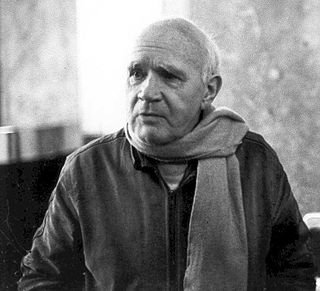A Quote by Al-Ghazali
He who does not arrive at the Intuition of these Truths by means of Ecstasy knows only the name of Inspiration.
Related Quotes
Truths are known to us in two ways: some are known directly, and of themselves; some through the medium of other truths. The former are the subject of Intuition, or Consciousness; the latter, of Inference; the latter of Inference. The truths known by Intuition are the original premisses, from which all others are inferred.
There are three means of believing--by inspiration, by reason, and by custom. Christianity, which is the only rational institution, does yet admit none for its sons who do not believe by inspiration. Nor does it injure reason or custom, or debar them of their proper force; on the contrary, it directs us to open our minds by the proofs of the former, and to confirm our minds by the authority of the latter.
The warrior of light knows the importance of intuition. In the midst of battle, he does not have time to think of the enemy's blows, and so he uses his instinct and obeys his angel. in times of peace, he deciphers the signs that God sends him. People say, "He's mad." Or, "He lives in a fantasy world." Or even, "How can he possibly believe in such illogical things?" But the warrior knows that intuition is God's alphabet and he continues listening to the wind and talking to the stars.
There are several kinds of truths, and it is customary to place in the first order mathematical truths, which are, however, only truths of definition. These definitions rest upon simple, but abstract, suppositions, and all truths in this category are only constructed, but abstract, consequences of these definitions ... Physical truths, to the contrary, are in no way arbitrary, and do not depend on us.
... Grief is selfish. It is indulged in for self-gratification, not for love. Cosmic man knows the beauty and unreality of death. Sympathy for the afflicted makes a reality of the affliction by its recognition as an infliction, while sorrow for the loss of anything, or for the »unfortunate« condition of anybody, is forgetful of the beauty and abundance of all-giving God and Nature. The Mind of God knows but one unchanging emotion - ECSTASY - the ecstasy of Love - the ecstasy which has its beginnings in an inner joyousness of one who is far on the road to the discovery of his immortal Self.
So multifarious are the different classes of truths, and so multitudinous the truths in each class, that it may be undoubtingly affirmed that no man has yet lived who could so much as name all the different classes and subdivisions of truths, and far less anyone who was acquainted with all the truths belonging to any one class. What wonderful extent, what amazing variety, what collective magnificence! And if such be the number of truths pertaining to this tiny ball of earth, how must it be in the incomprehensible immensity!






































